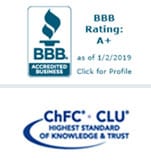A tax preparer takes responsibility for preparing and filing your taxes. Your tax preparer will begin by interviewing you about your retirement or employment, all sources of income, as well as filing status, possible dependents, exemptions and deductions. This gives the preparer a clear picture of your current situation.

The next step is for your tax preparer to go through your records and develop a full detailed understanding of your income and allowable expenses for the relevant tax year. Note that you are responsible for collecting all of your records, receipts, W2s, 1099s, and other relevant paperwork and delivering it to your tax preparer. Also note that while a good tax preparer is capable of digging through a shoebox full of receipts, his/her job is to prepare and advise and not to organize receipts. It’s best to bring to your appointment well-kept records that are logically organized.
Finally, your tax preparer will prepare and file your return. Many tax preparers today use tax software, along with the IRS website, to prepare client returns. The advantage of using a skilled human rather than simply running through the software on your own, though, is that tax preparers understand tax law. They can generally find the answer to a complicated situation more quickly than the average American with no special understanding of the tax system.
Most returns are now filed electronically, which is simpler for both you and your tax preparer. If you prefer to file by mail, though, your preparer will have you sign off on your return.
Tax Preparer Rights of Representation
Tax preparers are easy to find, but not all are equal under the law. According to IRS regulations, anyone who holds an IRS Preparer Tax Identification Number (PTIN) is authorized to prepare federal tax returns. However, different tax preparers have different rights, depending on their specific credentials.
A PTIN holder who is not a credentialed tax professional and does not undergo continuing education during the Annual Filing Season Program is allowed to prepare returns, but not to represent the client to the IRS. A PTIN holder who is not credentialed but does go through this program each year may represent clients whose returns they prepared in most IRS matters, though not appeals or collection issues. Attorneys, CPAs, and Enrolled Agents have unlimited rights to represent their clients in all tax-related matters.
Do I Need a Tax Preparer?
Whether to hire a tax preparer for an individual tax return is a highly personal issue. Some people genuinely enjoy doing their own taxes, and have a knack for understanding the tax codes. Others have no special circumstances at all, and simply e-file a 1040EZ each year.
For the majority of taxpayers, a tax preparer is not essential but can be a huge help. If your family has multiple income streams, perhaps a small business, and a variety of deductible expenses, a tax preparer can help to ensure that your forms are properly filed and that you have taken every credit and deduction for which you qualify.
Located in West Hartford, CT, Cowen Tax Advisory Group is a one-stop shop for all of your tax and financial advisory needs. Since 1978, we have assisted thousands of people with their financial decisions, while honoring our core values: transparency, honesty, dedication, respect, and education. If you are ready to get started with a trustworthy tax and financial advisory group, we invite you to call 860-676-1100 to schedule your free initial consultation.




